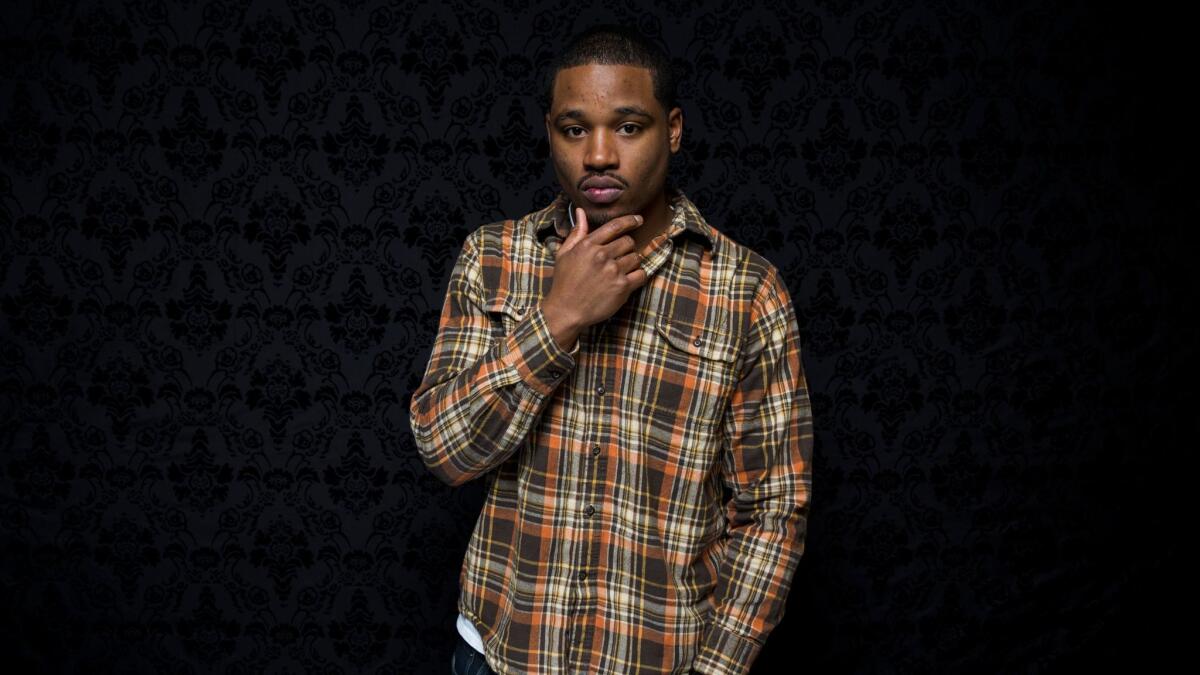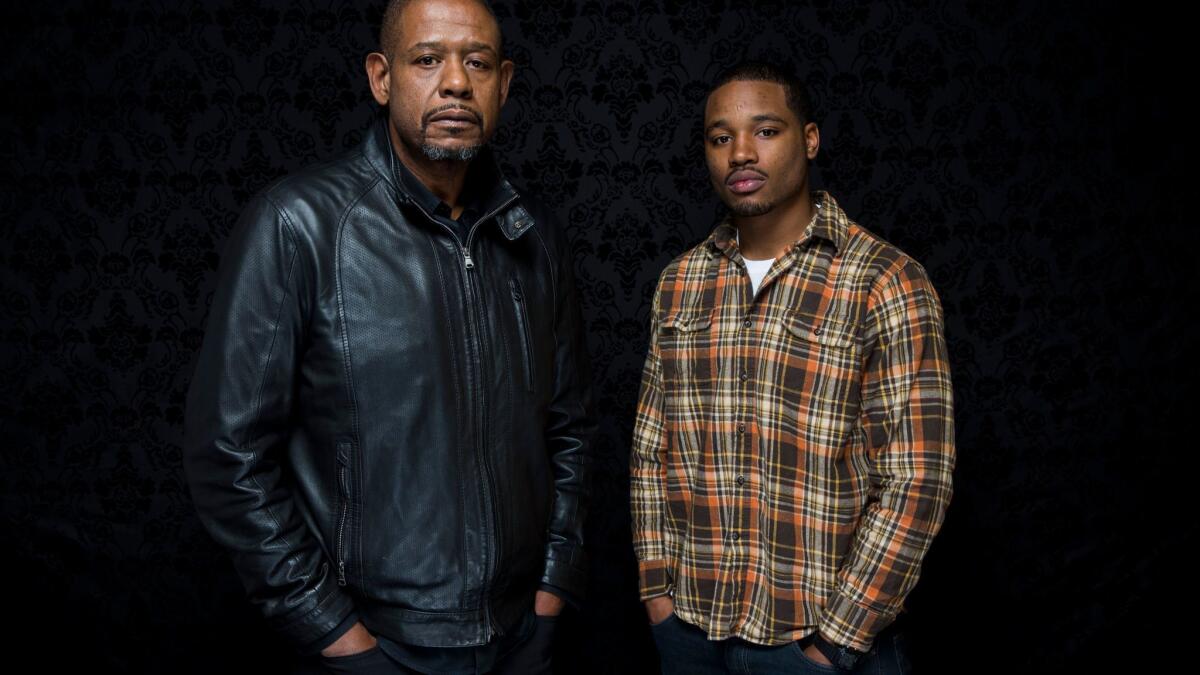From the Archives: ‘Black Panther’ director Ryan Coogler felt he was ‘born to make’ his Sundance debut ‘Fruitvale Station’

- Share via
Reporting from Park City, Utah — Editor’s Note: In 2013, “Black Panther” director Ryan Coogler debuted at the Sundance Film Festival with his Forest Whitaker-produced film, “Fruitvale Station.” Five years before “Black Panther” would make him a household name, Coogler gave his first interview to The Times when film critic Kenneth Turan talked to him in Park City, Utah, for the festival.
Ryan Coogler was at home in Oakland on New Year’s Day 2009 when it happened: Oscar Grant, a 22-year-old unarmed black man, was killed by a transit policeman at the BART station in the city’s Fruitvale neighborhood. Cellphone videos of the incident soon went viral, sparking protests and demonstrations.
“I saw the videos almost at once,” the 26-year-old filmmaker said. “He was dressed like me and my friends dress, he looked like us. It was kind of like it happened to me, or someone I know.”
At the time, Coogler was a graduate student at USC’s film school and had come to view movies as “my outlet for my fears, for the things that make me angry or frustrated, for messages I want to get out. I was terrified, shocked, angry. I felt this was the film I was born to make.”
And so, with the producing help of Forest Whitaker, Coogler wrote and directed “Fruitvale,” his first feature-length film, and landed it in the Sundance Film Festival. The drama follows Grant, charismatically played by Michael B. Jordan, on what turns out to be the last day of his life. It’s the standout film in the festival’s dramatic competition and was acquired for distribution by the Weinstein Co.

The idea, Coogler said, was “to humanize these characters you see on the news as being shot by the police. We see mug-shot photos, not people with a daughter, a mother, not full human beings.”
At the trial of the officer who shot Grant, Coogler noted, the dead man’s character was publicly “pulled in two directions. The defense lawyers painted his flaws, his prison time, the trouble he’d been in. And the other side made him out to be an angel. But character is made up of gray areas. Someone all bad or all good is not a human being.”
Whitaker, who has been a mentor to Coogler, agrees. “We exist on that line between good and bad,” he said. “Oscar Grant did have flaws, but he was trying to fix his life, to move forward. Those flaws were no excuse to destroy him, to murder him. We’re tired of that, it’s too much for us to deal with.”
VIDEO: Your guide to Sundance 2013
The connection with Whitaker’s company, Significant Productions, started when one of Coogler’s short films was seen by executive Nina Yang. She called him in for a talk and then set up a meeting with Whitaker, who says it was “unusual to meet a young filmmaker with such a strong social consciousness.”
“It meant a lot to meet Forest. He’s a legend; if we were in Blockbuster renting something and he was in it, that validated the movie for us,” said Coogler, who ducked out of a USC class for the meeting with Whitaker. “He’s a successful African American male who grew up in the inner city in California, and he’s a good person. He genuinely wants to have a positive impact on the planet.”
While talking to Whitaker, Coogler listed several ideas he had for features and when he got to the Fruitvale story, “Forest just said, ‘I’ll produce that one, let’s make it,’ and then he walked out of the room,” Coogler recalls. “I wanted to hurry up and write it before he changed his mind.”
Coogler, who graduated in 2011, said his process started with “reading depositions, public record stuff, but you can’t get the truth from a deposition. I met his friends, his girlfriend, his mother. I couldn’t go to Oscar and say ‘what were you like?’ I needed other people to flesh it out.”
A friend of Coogler’s introduced him to the family’s attorney, John Burris. Coogler talked to the lawyer, who introduced him to Grant’s relatives.
PHOTOS: 2013 Sundance portraits by the Times
“I met with the family, explained to them my reasons for wanting to make the film and who I was. I showed them some of my shorts. We talked and eventually Forest stepped in for reassurance, and they gave their blessing.”
The filmmaker wrote Grant’s part with actor Jordan — best known for his TV work on “Friday Night Lights” and “The Wire” — in mind. Besides being “enormously talented,” Jordan “looked like Oscar, and he has the same distinct smile. It was hard to find somebody who had warmth and an edge. Only a few actors could do that.”
Also important to Coogler was giving the film as much verisimilitude as he could. He gave Grant’s mother a small cameo and shot in as many real locations as he could, including the actual Fruitvale BART station where Grant’s death took place, a delicate situation where Whitaker’s backing for the project proved critical.
Made with assurance and deep emotion, “Fruitvale” is a memorable directorial debut. “Any time you make something, what goes into it can be felt from the other side,” Coogler said. “And pain, work and passion is what went in.”
Added Whitaker of his involvement, “I feel fortunate, I feel blessed.”
More to Read
The biggest entertainment stories
Get our big stories about Hollywood, film, television, music, arts, culture and more right in your inbox as soon as they publish.
You may occasionally receive promotional content from the Los Angeles Times.










